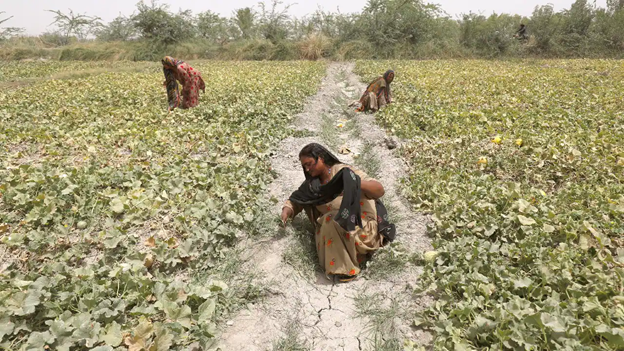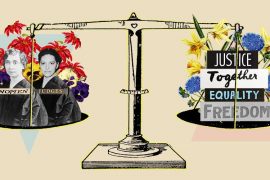Sonari, who is heavily pregnant, toils in Jacobabad, which last month became the world’s hottest city, in fields scattered with vivid yellow melons under the scorching heat.
With her child laying on a blanket in the shade close by so she can nurse him when he screams, her 17-year-old neighbour Waderi, who gave birth a few weeks ago, is back to working in temperatures that may approach 50 degrees Celsius (122 degrees Fahrenheit).
Sonari, in her mid-20s, stated, “When the heat is approaching, and we are pregnant, we feel anxious.
Millions of women worldwide, like those in southern Pakistan, are living on the cutting edge of climate change.
An examination of 70 research published during the mid-1990s revealed that pregnant women exposed to heat for extended periods are more likely to experience difficulties.
According to the meta-analysis conducted by several research institutes worldwide and published in the British Medical Journal in September 2020, the rate of stillbirths and preterm births rises by roughly 5% for every 1 degree Celsius increase in temperature.
According to Cecilia Sorensen, head of the Global Consortium on Climate and Health Education at Columbia University, climate change’s growing effects on women’s health are “extremely underdocumented,” in part because intense heat often makes other illnesses worse.
She explained that we don’t typically gather statistics on the effects of health on women, and this is frequently the case. “And frequently, poor women don’t seek medical attention.”
For pregnant women, heat is a huge issue.
According to interviews with more than a dozen female residents of the Jacobabad area as well as half a dozen development and human rights experts, women are particularly vulnerable to rising temperatures in developing countries on the frontlines of climate change because many are forced to work throughout their pregnancies and shortly after giving birth.
Women commonly prepare family meals over hot stoves or open flames, frequently in claustrophobic spaces with no ventilation or cooling, in socially conservative Pakistan and many other locations, raising the hazards even more.
In addition to the ambient heat, Sorensen said, “if you’re inside cooking next to a hot open fire, you have the burden of that heat, which makes things much more dangerous.”
The 22-year-old stated, “Nowadays I’m working 24/7, and my group is discovering that the impact of excessive heat is becoming entwined with other social and health concerns impacting women.”
On May 14, when temperatures in Jacobabad reached 51 C, making it the hottest city in the world at the time, the severe condition tragically threw many women into the light.





Comments are closed.